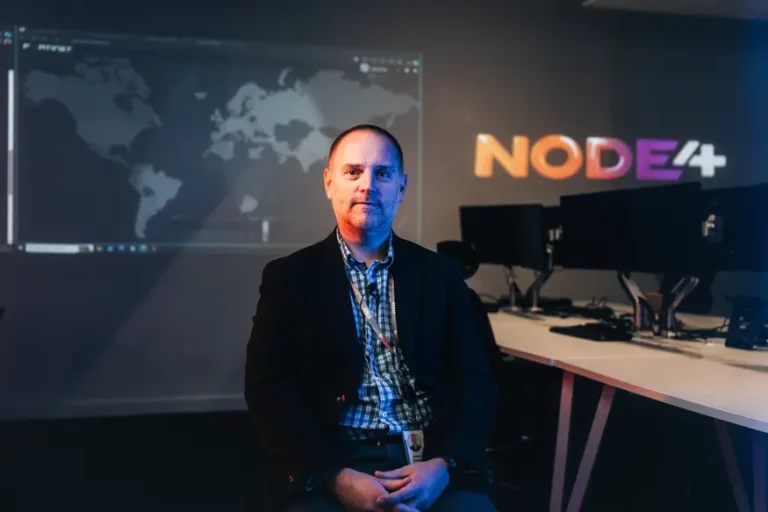93% of mid-market organisations told us they’re facing an IT skills shortage, and for more than half (56%), it’s having a serious impact on day-to-day operations.
That was one of the standout findings from our recent Mid-Market Report, and it points to a larger issue many IT and Business leaders are facing now. This isn’t just about talent gaps but shines a light on the disconnect between digital ambition and the human workforce needed to deliver it.
Understanding the digital workforce
Digital workforce refers to the combination of platforms, tools, automation and cloud-based services to automate repetitive tasks and enable the human workforce to work smarter and faster. These digital workforces have the capabilities to function independently or work together with humans to achieve business goals.
The UK mid-market has been dealing with a digital skill gap for a long time now. But we are now heading into a realm of an entirely new deficit that centres around the ability to adopt, implement and interpret AI. What organisations miss to understand is the fact that the digital workforce is not defined by how many tools and technologies you have access to. Rather, it is how effectively people and processes can work together with AI to deliver outcomes.

Discover the tech priorities reshaping the modern workplace in 2025.
A tipping point for productivity
Technology has evolved over the past years, and mid-market organisations have heavily invested in it. Cloud adoption, workplace tools, and collaboration software are a few common ones. Despite all these investments, businesses aren’t able to hit their goals. Teams are overwhelmed, and productivity is dipping. Digital transformation has brought more tools, more platforms, and more dashboards, but it hasn’t worked the right way.
This has created a mismatch with expectations and the need to deliver more, faster, with fewer resources.
Almost one-third of mid-market leaders agree that skills shortages have the biggest external influence on their organisation’s IT strategy. This proves that in a world where AI takes over the headlines, human skills, potential, and capabilities are still fundamental to the mid-market’s success and growth ambitions.
“AI can’t replace the human element, which is crucial for understanding and articulating client needs and problems.”
Ian Thomas, Chief Operations Officer
The AI and Automation Gap
Emerging technologies like AI and machine learning are changing the way businesses work and operate. Larger enterprises have started adopting AI to remove roadblocks and drive revenue goals. But Mid-Market organisations must take a cautious step, keeping in account the investment and resources required for it.
A study from the Mid-Market Report shows that 57% of organisations feel that the need for AI expertise is the primary driver for increased reliance on managed services deployment. But AI has evolved and there are low-code platforms and AI-enhanced workflows to make processes move quickly and efficiently. Organisations need to act quicker to see long-term benefits.
“At Node4, we have the skills to understand processes and outcomes, and the technological capability to implement automation, much of which is driven by AI. Our goal is to ensure efficient and effective operational activity through automation and AI for our clients.”
Ian Thomas, Chief Operations Officer
Digital workforce doesn’t translate to having more tools
Digital tools have quadrupled over the past few years. Collaboration platform, workflow systems, analytics, file sharing, communication channels, name it, and there is a tool for every function. These systems, instead of making things easier, have made it more complicated, where employees find themselves in a tangled web of systems.
Critical data is not scattered across platforms. Workflows are broken between tools. Communication is siloed across different channels. Mid-market organisations are slowly starting to recognise this and are starting to pivot. Now, the focus is more towards building smarter and more connected tools and platforms.

Explore how mid-market leaders are enabling productivity and innovation through digital tools.
The strong case for re-skilling
Another clear contributor to the digital workforce crisis is the digital skills gap in the workforce. People are often expected to keep up with the newer technologies without any training or support.
Closing the digital skills gap has become more crucial now. When employees understand how to use the tools around them, and more importantly, how to apply them to real work problems, the results are immediate. IT and Operations leaders must take steps to adopt a culture of continuous learning and encourage employees to take part in training, pursue certifications and attend workshops.
At Node4, we have a clear pipeline and plan for talent development. We combine global access with our apprentice and graduate schemes and set a clear line of sight for recruiting, developing, and harnessing the talent of the future.
Mind The (Digital Skills) Gap
Topics Covered
- Root causes of the skills gap.
- Upskilling and reskilling.
- Partnering with education.
Streamlining Operations
Every digital workforce has an operations team that is working hard to keep the different platforms and systems secure and reliable. With these in place, cybersecurity becomes a crucial part of the equation. We’ve already seen that mid-market leaders plan to use automation and AI to solve skills shortages and that over a quarter intend to enhance cybersecurity with AI.
IT and Operations leaders should adopt strategies to upskill existing talent and outsource external expertise. The latest figures from our Mid-Market report suggest that 30% of the companies will completely outsource their IT operations, whereas 45% will adopt a hybrid approach.
Mid-market organisations are doubling down on their strengths while seeking assistance to identify skills gaps. This is particularly true when these gaps intersect with unrealistic expectations from the wider business, such as safeguarding against cyber threats and implementing AI.
“At Node4, IT is our core business. We can often do it better, cheaper, and more effectively than clients whose core business is not IT. We can deliver scale, complexity, and have the skills to support our clients without them having to foot the bill for a full-time employee.”
Ian Thomas, Chief Operations Officer
Final thoughts
Tools have evolved, and systems are in place. But people and processes are not quite aligned. The challenge is to close the gaps now. This means investing in training, building secure strategies and working together with the digital workforce to drive meaningful output.
Whether it’s unifying your workplace tools, implementing automation, closing the digital skills gap in the workforce, or enhancing your cybersecurity, Node4 is here to help you build your digital workforce. Speak to our team and see how we can close your digital skill gap.
Unlocking Growth in the Mid-Market: The Node4 Report
The 2025 Node4 Mid-Market Report reveals how business and IT leaders can close the productivity gap and unlock their next growth phase, with insights from 600+ decision-makers across six sectors.
In an era of economic uncertainty, the UK’s mid-market continues to power ahead – but something’s slowing it down. Based on original research with over 600 IT and business leaders, this report exposes the key tensions holding mid-sized organisations back: misalignment between teams, underused technology, and stalled transformation efforts.
Latest news…

Addressing IT Skills Shortage

Is your business AI-ready?

